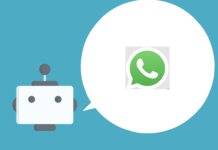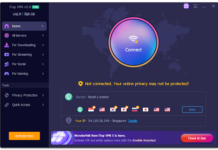If your business doesn’t already have a mobile application, it’s time to consider enlisting a development team to get it up and running. With the proliferation of DevOps tools by jFrog and other software companies, it’s easier than ever to spearhead development efforts. And the fact is, a mobile application can capture a bigger piece of your market share, no matter what industry you’re in. For example, in half a year, Domino’s Pizza increased their sales by 28% in the UK alone after the launch of their mobile app. Overall, mobile devices account for 52% of their orders.
According to market research company Red Hat, 90% of surveyed businesses had active plans to invest in mobile apps in the coming year. If you choose not to make a move, you could quickly fall behind your competition. With a mobile app, you can secure your presence in your industry and get your logo on mobile screens—directly in the pockets of your target market. With that in mind, here are five reasons you should develop a mobile app:
Send Push Notifications
Push notifications are automated messages sent to a person’s mobile device. With a mobile app, you’re able to send push notifications straight to a person’s screen—a far more straightforward approach than, say, email marketing.
Everyone looks at their screen and sees their notifications. And there are plenty of other reasons why push notifications can help your business, too. Not only can it help stimulate user engagement, but it can help re-engage and retain loyalty.
According to one study conducted by Urban Airship, push notifications can increase app retention anywhere from 3 to 4 times. Plus, there’s plenty you can do with push notifications. Use them to inform customers of sales and promotions, help reduce cart abandonment, send limited time offers, and target specific customers according to demographics.
Also read: Emerging Technology Trends 2020: What Are the Next Big Things in Tech?
Learn More About Your Customers
Mobile applications help you make data-driven decisions about your strategies and campaigns. For instance, location data offers a wealth of information. Thanks to the location data of your users, you’re able to learn more about where the majority of your orders are coming from, in what volume, at what times.
Push notifications alone help you track actionable metrics. They allow business owners and marketers to analyze a complex set of metrics, such as open rates, open times, delivery receipts, and engagement. This is great for understanding when messages are most likely to be opened. The more you understand about your customers, the better your campaigns will be—and ultimately your bottom line.
Promote Customer Loyalty
The average American consumer is targeted via ads around 4,000 to 10,000 times per day, according to digital marketing experts. As a result, you can start to lose your impact on customers when there’s so much noise. A mobile application is a great way to make a sincere connection with them.
You may have already heard of the saying that it’s easier and cheaper to sell to existing customers than to acquire new customers. Because of this, it’s crucial to keep those customers happy. One of the best aspects of app development is that it allows you to create a better platform for rewards management. This in turn helps promote customer loyalty. When you look at some of the customer loyalty statistics, it’s easy to understand why this is such an important area for brands.
Also read: Three Ways Technology Has Shaped the Gaming World
Manage Customer Support
Today’s businesses are going the extra mile to provide customer support, and the fact is, customer support can make or break a customer’s loyalty to your brand. According to one study conducted by Walker, by 2020, the customer experience will be even more important than the average consumer than the actual product.
Not only is your app available to customers at all times, but your “Customer Portal” can house your FAQ, Customer Support contact details, and even chat session for customers to get immediate answers virtually. You can also develop your app to allow in-app feedback from your customers. This is a great opportunity for a company to reply and provide a more personal exchange with the customer. It also keeps potentially negative feedback off of major review sites like Yelp and Google.
Incorporate Gamification
Gamification is a big deal in today’s business landscape. Gamification is the process of adding elements that are typical to a game to non-game contexts. Lately, gamification has been a trend in mobile marketing, and there’s no signs of slowing down.
There are several examples of gamification in banking alone. When PNC launched a virtual wallet for customers to be able to transfer funds between their accounts. When users are in the process of transferring money from their checkings into their savings, a “Punch the Pig” feature appears.
A language learning company like Duolingo could allow users to earn Badges and Points when excelling in their language lessons. Even the United States Army developed a game that served as a recruitment tool; users could download the application and play a game to test their skills in a strategic shooting environment.
Also read: Technology That Makes Life Easier










